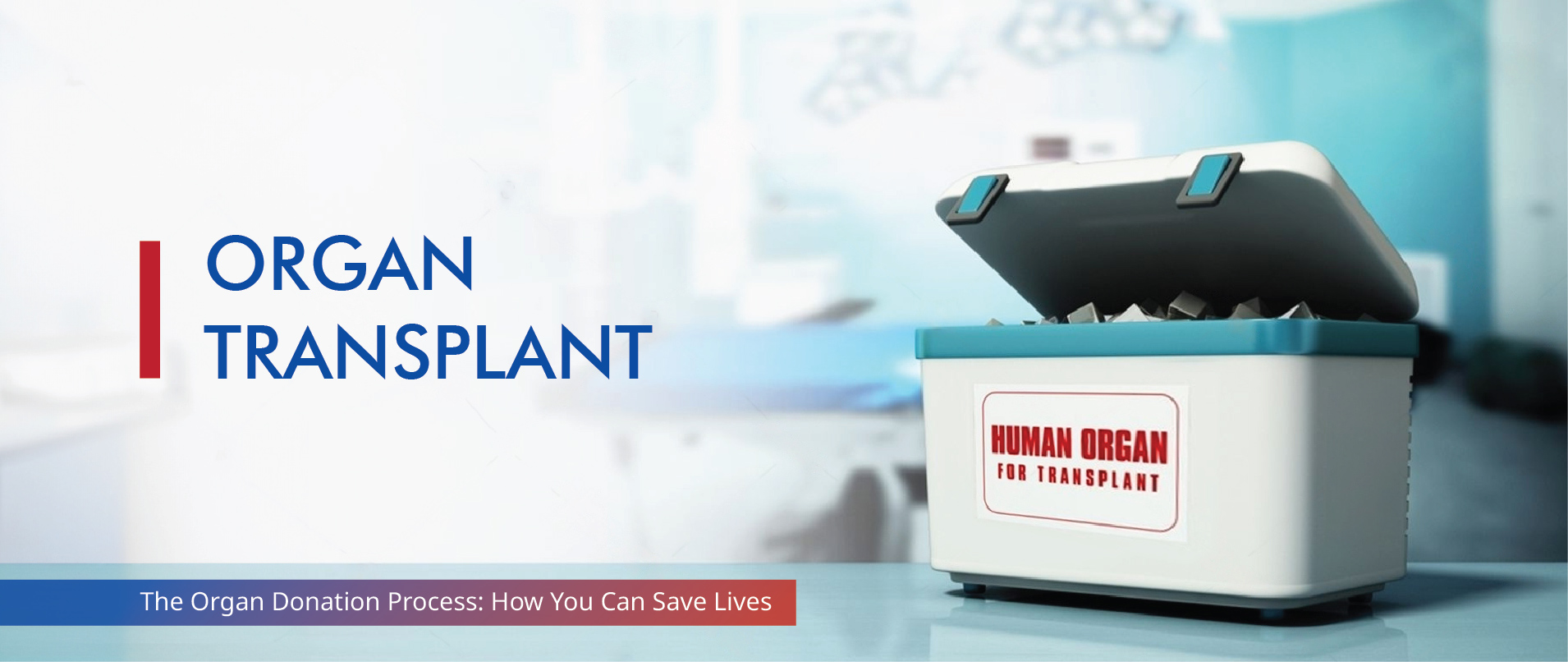In India, there are two types of organ donation: living and deceased. Living donation involves a healthy person donating a kidney or part of their liver. Deceased donation happens when organs are donated after brain death, with the process managed by NOTTO for fair distribution.
Organ donation is an act of selflessness that can transform and save the lives of those in need. Whether it’s donating a kidney, liver, heart, eyes, or other vital organs or tissues, an organ donor can make an unimaginable difference in a recipient’s life.
In this article we will explain the organ donation process in India, the eligibility criteria, types of donation, and the history behind this life-saving practice. We will also address common questions and provide a call to action for those interested in becoming organ donors.
What Is Organ Donation?
Donating one or more of your organs to someone in need is called organ donation. One can donate the heart, lungs, liver, kidneys, pancreas, and intestines. People can also donate various tissues, such as corneas, skin, bone, and heart valves. An organ donation can happen after the donor’s death or while alive (e.g., kidney donation).
Law Governing Organ Donation In India
The Transplantation of Human Organs and Tissues Act, or THOTA, was enacted in 1994 in India and subsequently amended in 2011. This law governs the process of organ donation and transplantation in the country.
The key provisions of the THOTA include:
- Establishing a regulatory framework for organ donation and transplantation
- Defining the criteria for brain death and the process of organ retrieval
- Regulating the commercial trade of organs and ensuring transparency in the allocation of organs
- Providing legal protection for both donors and recipients
Eligibility Criteria For Organ Donation In India
To become an organ donor in India, a person must meet the following eligibility criteria:
- Age:
There is no upper age limit for organ donation, but donors must be at least 18 years old.
- Medical Condition:
To ensure successful transplantation, the donor must be in good health and free from any serious medical conditions that could affect the viability of the donated organs.
- Consent:
The donor must provide informed consent during their lifetime or through their family members after death.
- Residency:
The donor must be an Indian citizen or a registered non-resident Indian (NRI).
Process Of Organ Donation
In India, there are two main types of organ donation: living organ donation and deceased organ donation, says Dr. Avinash T S, a renowned Kidney Transplant Surgeon at SPARSH Hospital.
- Living Organ Donation:
The process of living organ donation occurs when a living person donates an organ or a part of an organ to someone in need.
The Living Donation Process
- Medical Tests and Evaluations:
The living donor undergoes various medical tests and evaluations to determine compatibility with the recipient.
- Confirmation of Compatibility:
A doctor confirms the donor’s medical compatibility with the recipient. The transplant can only proceed once all tests indicate a positive match.
- Organ Retrieval:
Doctors surgically retrieve the donor’s organs, which are then temporarily stored in special chemical solutions until transplantation
- Post-Procedure Care:
The living donor remains under medical care for several days or weeks following organ retrieval until they are fit to go home.
The most common types of living organ donation are:
A living person can donate one of the two kidneys, as the remaining kidney can perform the functions of both.
A portion of the liver can be donated, as it can regenerate and restore its full function in both the donor and the recipient.
The Deceased Donation Process
- Family Consent:
The donor’s family must give consent for the donation. During this time, the donor is kept on life support, with doctors attending to all their needs until the organ retrieval process can begin.
- Recipient Identification:
Suitable recipients for the donor’s organs are identified from a waiting list. These recipients are notified and asked to reach their respective hospitals.
- Organ Retrieval and Aftercare:
After the organs are retrieved, the donor’s body is respectfully handed over to the family.
The most commonly donated organs from deceased donors include the heart, lungs, liver, kidneys, pancreas, and intestines. Various tissues, such as corneas, skin, bone, and heart valves, can also be donated.
History Of Organ Donation
In the early 20th century, surgeons performed the first successful organ transplant, marking the beginning of the history of organ donation. In 1954, Dr. Joseph Murray and his team at Brigham Hospital in Boston, USA, performed the world’s first successful kidney transplant between identical twins.
Over the years, advancements in medical technology, surgical techniques, and immunosuppressive drugs have significantly improved the success rates of organ transplantation. Doctors performed the first successful kidney transplant in India in 1971 at the Postgraduate Institute of Medical Education and Research or PGIMER in Chandigarh.
THOTA, enacted in 1994, provided a legal framework for organ donation and transplantation in the country. This landmark legislation paved the way for establishing the National Organ & Tissue Transplant Organisation (NOTTO) and the Regional Organ and Tissue Transplant Organisations (ROTTOs), which coordinate and regulate the organ donation and transplantation process.
Despite these advancements, the demand for organ transplants in India far exceeds the available supply. As per the data provided in the National Health Portal of India, there are over 500,000 people waiting for organ transplants, but only around 10,000 transplants are performed annually. This situation underscores the critical need to raise awareness thus encouraging more people to consider becoming organ donors.
Organ Donation Awareness in India
Organ donation awareness in India has been steadily growing, but there is still a significant gap between the need for transplants and the availability of donated organs. Several initiatives have been undertaken to promote organ donation and address the misconceptions surrounding the process.
The Government of India, through the Ministry of Health and Family Welfare, has launched various awareness campaigns and programs to educate the public about the importance of organ donation.
These efforts include:
- National Organ Donation Day:
Observed on November 27th each year, this day aims to raise awareness and encourage people to pledge their organs.
- Organ Donation Awareness Campaigns:
The government has launched nationwide campaigns in collaboration with non-profit organisations to dispel myths and encourage organ donation.
- Organ Donation Registry:
The National Organ and Tissue Transplant Organisation (NOTTO) maintains a centralised registry of potential organ donors, making it easier to match donors with recipients.
- Incentives for Organ Donation:
Some states in India offer financial incentives and other benefits to families who consent to organ donation after the death of a loved one.
Reference:







